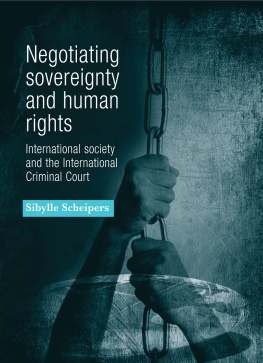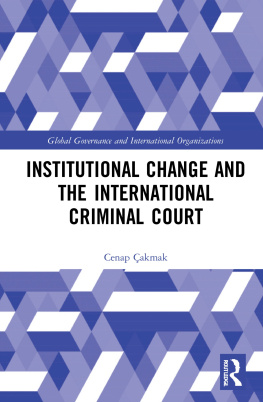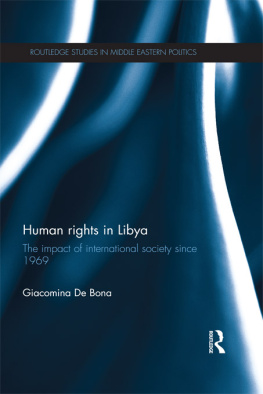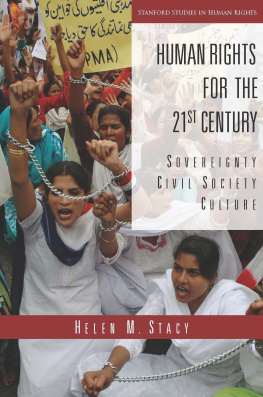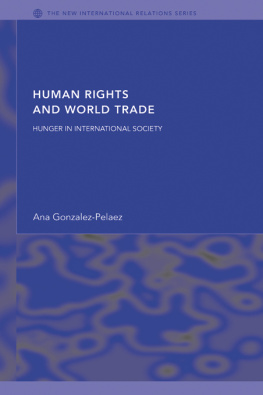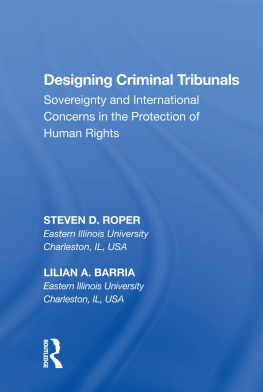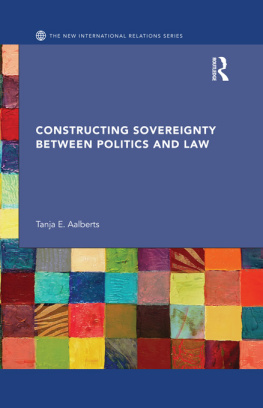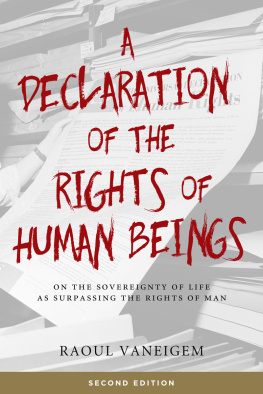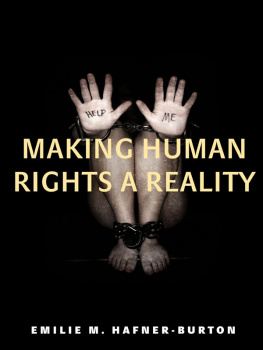Negotiating sovereignty and human rights
Negotiating sovereignty and human rights
International society and the International Criminal Court
Sibylle Scheipers
Copyright Sibylle Scheipers 2009
The right of Sibylle Scheipers to be identified as the author of this work has
been asserted by her in accordance with the Copyright, Designs and Patents
Act 1988.
Published by Manchester University Press
Oxford Road, Manchester M13 9NR, UK
and Room 400, 175 Fifth Avenue, New York, NY 10010, USA
www.manchesteruniversitypress.co.uk
Distributed in the United States exclusively by
Palgrave Macmillan, 175 Fifth Avenue,
New York, NY 10010, USA
Distributed in Canada exclusively by
UBC Press, University of British Columbia, 2029 West Mall,
Vancouver, BC, Canada V6T 1Z2
British Library Cataloguing-in-Publication Data
A catalogue record for this book is available from the British Library
Library of Congress Cataloging-in-Publication Data applied for
ISBN 978 0 7190 8009 8
First published 2009
18 17 16 15 14 13 12 11 10 09 10 9 8 7 6 5 4 3 2 1
The publisher has no responsibility for the persistence or accuracy of URLs
for any external or third-party internet websites referred to in this book,
and does not guarantee that any content on such websites is, or will remain,
accurate or appropriate.
Typeset
by Frances Hackeson Freelance Publishing Services, Brinscall, Lancs
Printed in Great Britain
by TJ International Ltd, Padstow
Contents
Figures and tables
Figures
Tables
Acknowledgements
I am grateful to the Berlin Graduate School of Social Sciences at Humboldt University for providing me with an academic home while I was writing my PhD thesis on which this book is based. In particular, I would like to thank my supervisors, Professor Herfried Mnkler and Professor Klaus Eder, who generously offered their time and expertise to discuss my work with me.
During the time of my Ph.D. research, I benefited immensely from a Marie Curie Pre-doctoral Fellowship hosted by the European Research Institute at Birmingham University. I am grateful to Professor Thomas Diez, who supervised my research during that time and continued to be a source of advice and encouragement after that.
I would like to thank friends and colleagues who discussed my research with me, read various drafts and chapters of the thesis, and, most importantly, endured me during the alternating fits of euphoria and frustration that typically accompany the process of writing a Ph.D. Heiko Fritz, Bettina Renz and Daniela Sicurelli were particularly indispensible in this regard.
Also indispensable during my Ph.D. research were the scholarships I received from the Land Berlin (NAFG) and from the European Commission/FP 6 (Marie Curie), and the travel funds provided by the German Academic Exchange Service (DAAD).
Finally, I would like to thank my family, without whose unfailing support and encouragement this project like so many others would not have been possible.
Sibylle Scheipers
Oxford
Note to the reader
Please note that references are to be found both in the References and in the Appendix.
Abbreviations
ASPA | American Servicemembers Protection Act |
BIAs | Bilateral Immunity Agreements |
CFSP | Common Foreign and Security Policy |
CG | Convening Group |
DipCon | United Nations Diplomatic Conference of Plenipotentiaries on the Establishment of an International Criminal Court |
ESF | Economic Support Fund (US) |
ICC | International Criminal Court |
ICTR | International Criminal Tribunal for Rwanda |
ICTY | International Criminal Tribunal for Yugoslavia |
ILC | International Law Commission |
IR | International Relations |
LMG | Like-Minded Group |
LRA | Lords Resistance Army (Uganda) |
NAM | Non-Aligned Movement |
NGO | non-governmental organisation |
OECD | Organisation for Economic Co-operation and Development |
P5 | Group of the permanent five members of the UN Security Council |
PMC | Private Military Company |
PrepCom | Preparatory Commission for the International Criminal Court |
PS | Parti Socialiste (French Socialist Party) |
RPR | Rassemblement pour la Rpublique (French Republican Party) |
UNCHR | United Nations Commission on Human Rights |
WTO | World Trade Organization |
Introduction
Unless we are prepared to abandon every principle of growth for international law, we cannot deny that our own day has the right to institute customs and to conclude agreements that will themselves become sources of a newer and strengthened international law. International law is not capable of development by the normal processes of legislation, for there is no continuing international legislative authority. Innovations and revisions in international law are brought about by the action of governments such as those I have cited, designed to meet a change in circumstances.
There is a tendency in the negotiations, occasionally, to seek to transform human rights principles and prohibitions on state practice into new criminal law principles. But this treaty-making exercise cannot become a law-making exercise. The treaty must reflect what is currently international criminal law, not what we hope or even confidently predict may one day become criminal law.
The preceding quotes both represent statements by US officials concerning the role of international law and its development or, rather, continuity. The first was made by Justice Robert H. Jackson, chief prosecutor of the United States, in his opening remarks for the Nuremberg Trials in 1945; the second by David Scheffer, US Ambassador at Large for War Crimes issues at that time, with reference to the emerging International Criminal Court (ICC). The difference between the two positions seems to be dramatic at first glance: Jackson envisages international law as a highly dynamic legal field, the development of which is mainly driven by states and their governments. Scheffer, on the contrary, stresses the continuity of international law: international treaties ought to reflect custom but should not create new law.

